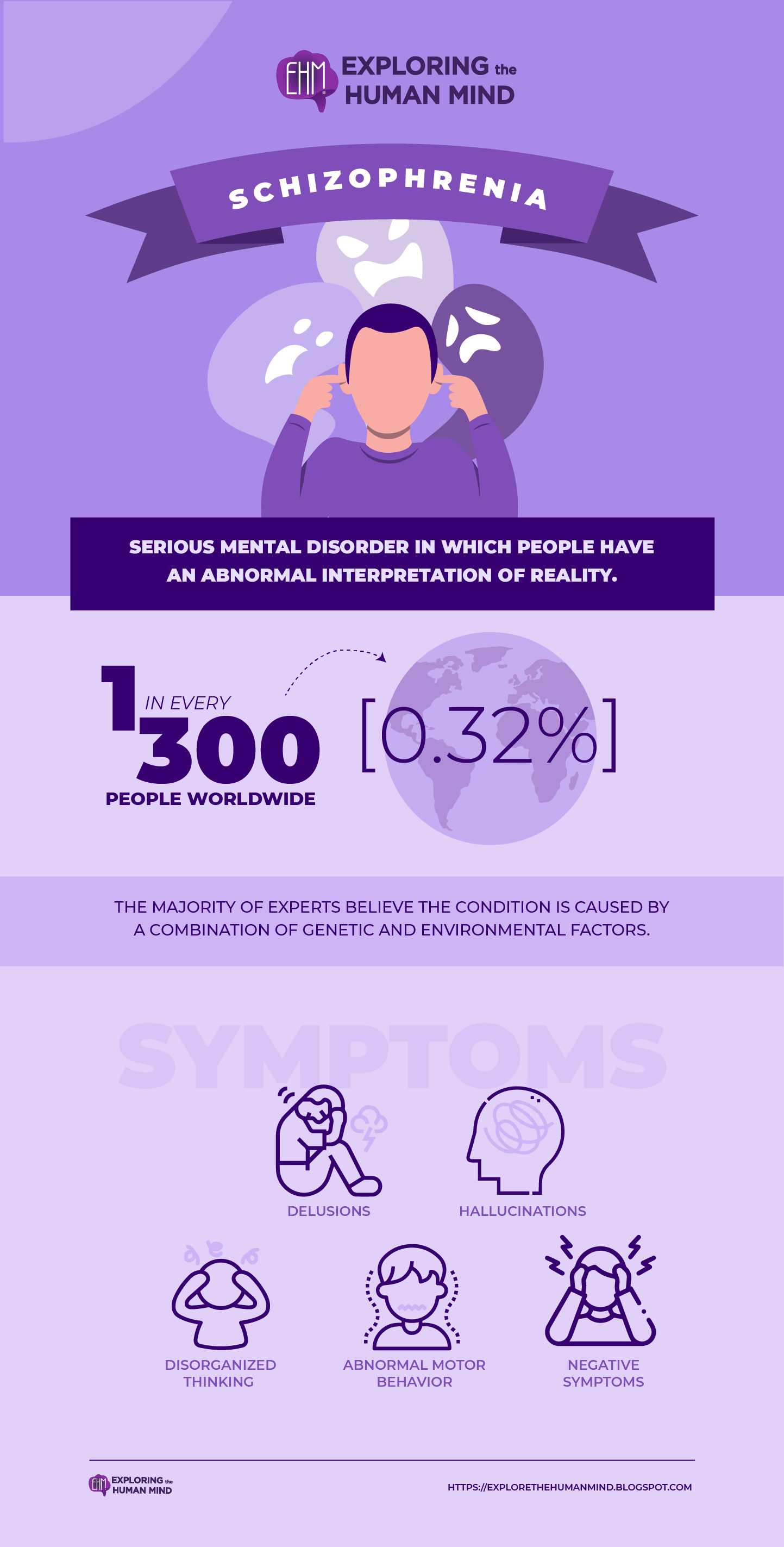Schizophrenia
Schizophrenia patients must be treated for the rest of their lives. Early treatment may help control symptoms before serious complications develop, improving the long-term outlook.
Symptoms
Schizophrenia is characterised by a variety of problems with thinking (cognition), behaviour, and emotions. The signs and symptoms vary, but they usually involve delusions, hallucinations, or disorganized speech and reflect a reduced ability to function. Symptoms could include:
- Delusions: These are false beliefs that are not based in reality. For example, you believe you are being harmed or harassed; certain gestures or comments are directed at you; you have exceptional ability or fame…
- Hallucinations: These are usually associated with seeing or hearing things that do not exist. Hallucinations can occur in any sense, but hearing voices is the most common.
- Disorganized thinking (speech): Effective communication can be hampered, and responses to questions may be partially or completely unrelated. Rarely, speech may include the use of meaningless words that cannot be understood, a practice known as word salad.
- Extremely disorganized or abnormal motor behavior: This can manifest itself in a variety of ways, ranging from childlike silliness to unpredictable agitation. It is difficult to complete tasks when behaviour is not focused on a goal.
- Negative symptoms: This term refers to a reduced or non-existent ability to function normally. For example, the person may neglect personal hygiene or appear emotionless (no eye contact, no change in facial expressions, or speaks monotonously), may lose interest in everyday activities, withdraw socially, or lose the ability to experience pleasure.
The type and severity of symptoms can change over time, with periods of worsening and remission. Some symptoms may be present at all times.

vectors by Freepick; graphic design by Vadot
Causes of schizophrenia
It is unknown what causes schizophrenia. However, the majority of experts believe the condition is caused by a combination of genetic and environmental factors.
Some people are thought to be more vulnerable to developing schizophrenia, and certain situations, such as a stressful life event or drug abuse, can trigger the condition.
Treating schizophrenia
Schizophrenia is typically treated with a tailored combination of medication and therapy. In most cases, antipsychotic medications and cognitive behavioural therapy (CBT) will be used. People with schizophrenia are usually helped by a community mental health team, which can provide day-to-day support and treatment based on each individual's needs.
Schizophrenia affects approximately 24 million people or 1 in 300 people (0.32%) worldwide. This rate is 1 in 222 people (0.45%) among adults. It is not as common as many other mental disorders. Onset is most often during late adolescence and the twenties, and onset tends to happen earlier among men than among women.
People with schizophrenia are 2 to 3 times more likely to die early than the general population. This is often due to physical illnesses, such as cardiovascular, metabolic, and infectious diseases.
Reference:
Schizophrenia - Symptoms and causes. (2020). Mayo Clinic; https://www.mayoclinic.org/diseases-conditions/schizophrenia/symptoms-causes/syc-20354443
NHS Choices. (2023). Overview - Schizophrenia. https://www.nhs.uk/mental-health/conditions/schizophrenia/overview/
WHO. (2022, January 10). Schizophrenia. Who.int; World Health Organization: WHO. https://www.who.int/news-room/fact-sheets/detail/schizophrenia






Comments
Post a Comment